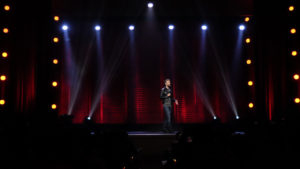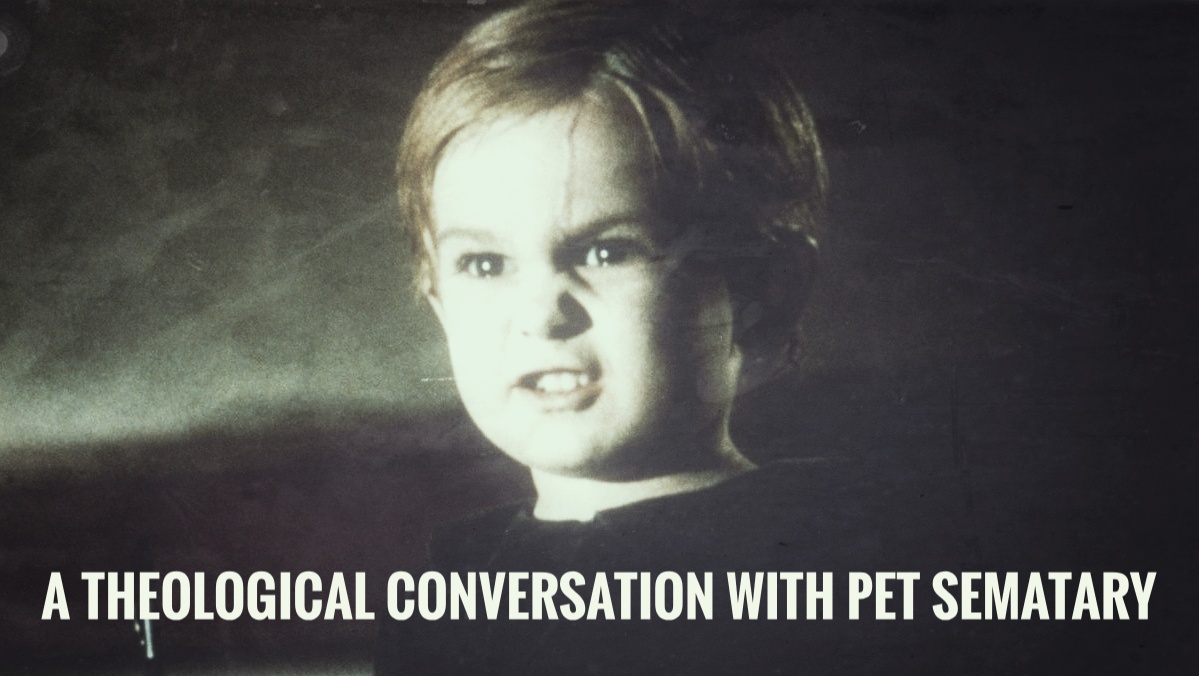 For a time in college, I found myself saying the worst thing I could imagine and finding it hilarious. In order to avoid getting in trouble, I’d make sure I was saying it ironically. I’d say something misogynistic and it was “funny” because I didn’t mean it. After a few weeks—and several conversations with my friends, I realized I was the only person who found it funny, so I stopped. Anthony Jeselnik still thinks it’s funny and doesn’t intend to stop any time soon. However, Jeselnik is much better at the art of ironic, offensive humor than I am. His form of ironic jokes are clever and present interesting ideas, but I don’t consider them overly funny.
For a time in college, I found myself saying the worst thing I could imagine and finding it hilarious. In order to avoid getting in trouble, I’d make sure I was saying it ironically. I’d say something misogynistic and it was “funny” because I didn’t mean it. After a few weeks—and several conversations with my friends, I realized I was the only person who found it funny, so I stopped. Anthony Jeselnik still thinks it’s funny and doesn’t intend to stop any time soon. However, Jeselnik is much better at the art of ironic, offensive humor than I am. His form of ironic jokes are clever and present interesting ideas, but I don’t consider them overly funny.
For example, Jeselnik opens his special by saying he doesn’t get along with Christians and begins telling a story about his friend’s wife, a Christian, who confronted Jeselnik when her husband called her a bad name.
“What, did he call you, a b—h?” Jeselnik asks.
The wife responded negatively, he says.
“A c–t?” he then asks.
She again said no.
“Then he didn’t hear it from me,” Jeselnik quips and proceeds to call this the best opening joke of all time because it tells his audience just how much of a genius he is.
The rest of his special shifts back and forth within this model: a rather unsettling setup, a disturbing punchline, and a self-congratulatory, arrogant follow-up. To be fair, the arrogant comic is a rather common trope. Bo Burnham, who I love, plays this type of character. Jack Whitehall also does something similar, if more posh. However, where Burnham and Whitehall have a charm to their arrogance, or break character enough to show they are human underneath, Jeselnik keeps up the front throughout the entirety of his special. Whether talking about finding his dead turtle next to his dead mother or talking about his adoration for murder-suicides (“Do you think teen suicides are better? No. … College is important.”) Jeselnik keeps up a constant barrage of saying awful things and being smugly happy about it. After a while, it begins to wear on me.
 In some sense, this can be offensive. In an era of trigger warnings and political correctness, Jeselnik is rather open about not caring what people think. Yet, Jeselnik’s words do not come out of a malicious place. His words are just performance art and clever wordplay about truly horrific topics. Personally, instead of finding it offensive, I find it boring. The constant barrage of offense becomes predictable after fifteen minutes. It becomes a rather rote formula: What is the most horrible thing Jeselnik could say here? That’s his punchline.
In some sense, this can be offensive. In an era of trigger warnings and political correctness, Jeselnik is rather open about not caring what people think. Yet, Jeselnik’s words do not come out of a malicious place. His words are just performance art and clever wordplay about truly horrific topics. Personally, instead of finding it offensive, I find it boring. The constant barrage of offense becomes predictable after fifteen minutes. It becomes a rather rote formula: What is the most horrible thing Jeselnik could say here? That’s his punchline.
There is a theory of comedy that argues humor is a combination of a “benign violation”: say something that violates social norms, but in a benign way. So a joke about a fire in a maternity ward violates cultural norms—you can’t joke about that!—but it is benign because he doesn’t actually mean it. However, Jeselnik’s constant violation reaches a level of benignity by never seeking for anything other than just saying the worst thing that can pop into his head. He does it in different and often clever ways, but many times throughout the special I wanted to click away because every joke felt the same. Jeselnik is very good at what he does, and he’s consistent, but he feels rather one note. He’s going to say something designed to illicit horror or disgust or distaste, but after fifteen minutes the jokes had nothing else to offer. His shock humor ceases to shock because there is never any variation.
This was a problem with his first Netflix special too: it becomes incredibly dull. In Jeselnik’s previous special, “Thoughts and Prayers,” I found myself bored until the end, where Jeselnik tried to turn it into a moral lesson against politicians who send thoughts and prayers instead of action. However, this whole time Jeselnik has been saying terrible things and criticizing the audience if they critique him. What he says is irrelevant and nobody should care, he seems to argue in the previous special. I found it rather disingenuous to try and argue both sides. Jeselnik’s very model of comedy undercuts his conclusion. Yet, this special tries a different approach for the conclusion.
 Like his last special, Jeselnik closes with a longform comedic story. This one is about taking his friend to an abortion clinic (which raises hackles just with the topic). Jeselnik, however, manages to draw more than just offense out of this story. He jokes about telling his friend, “You killed it in there!” He also jokes about what gift to get someone who just had an abortion (A succulent? Why get her something else she doesn’t have to take care of?). Jeselnik isn’t afraid to make both sides of this deeply polarizing political issue uncomfortable and by doing so he ends up bringing a fascinating nuance to the topic. His aggression and arrogant sarcasm give him the space to discuss abortion as the killing of a potential child and, yet, state his support for people who do so. Unlike “Thoughts and Prayers,” his style blends perfectly with the conclusion because he says the things that both sides are probably thinking in their most honest moments, but are afraid to say. And, because this is a true story (or so Jeselnik says), we almost get a glimpse at the humanity inside of Jeselnik. He is still definitely playing a character, but we start to see that he is more than just an offensive comedian. He’s an offensive, clever, human being, both arrogant and caring at the same time.
Like his last special, Jeselnik closes with a longform comedic story. This one is about taking his friend to an abortion clinic (which raises hackles just with the topic). Jeselnik, however, manages to draw more than just offense out of this story. He jokes about telling his friend, “You killed it in there!” He also jokes about what gift to get someone who just had an abortion (A succulent? Why get her something else she doesn’t have to take care of?). Jeselnik isn’t afraid to make both sides of this deeply polarizing political issue uncomfortable and by doing so he ends up bringing a fascinating nuance to the topic. His aggression and arrogant sarcasm give him the space to discuss abortion as the killing of a potential child and, yet, state his support for people who do so. Unlike “Thoughts and Prayers,” his style blends perfectly with the conclusion because he says the things that both sides are probably thinking in their most honest moments, but are afraid to say. And, because this is a true story (or so Jeselnik says), we almost get a glimpse at the humanity inside of Jeselnik. He is still definitely playing a character, but we start to see that he is more than just an offensive comedian. He’s an offensive, clever, human being, both arrogant and caring at the same time.
In the end, Jeselnik is a clever comedian, but not always a particularly funny one. If you are easily offended, look elsewhere. If you want thoughtful comedy, there are better comedians. (Jeselnik admits as much in a New York Times interview, saying he’d like to make more of a difference but isn’t sure how.) Despite this, Jeselnik’s dark humor offers a chance to encounter difficult discussions from a slightly different perspective, if you are willing to wade through the rest of the offense to get there.


